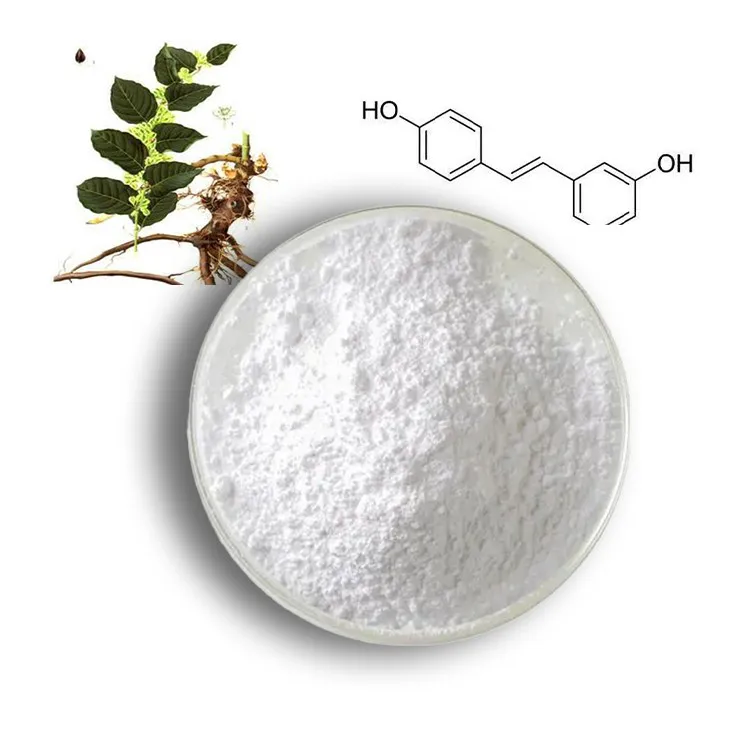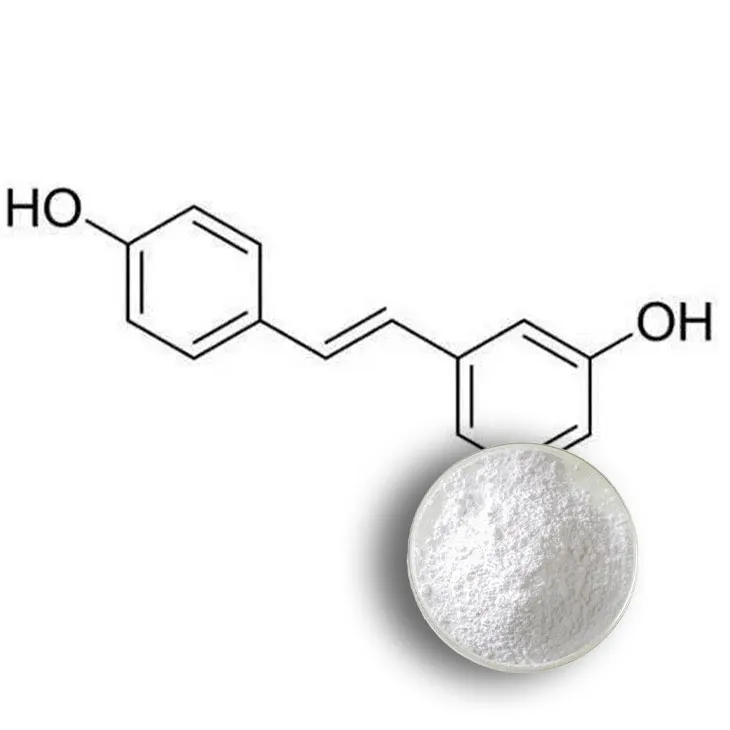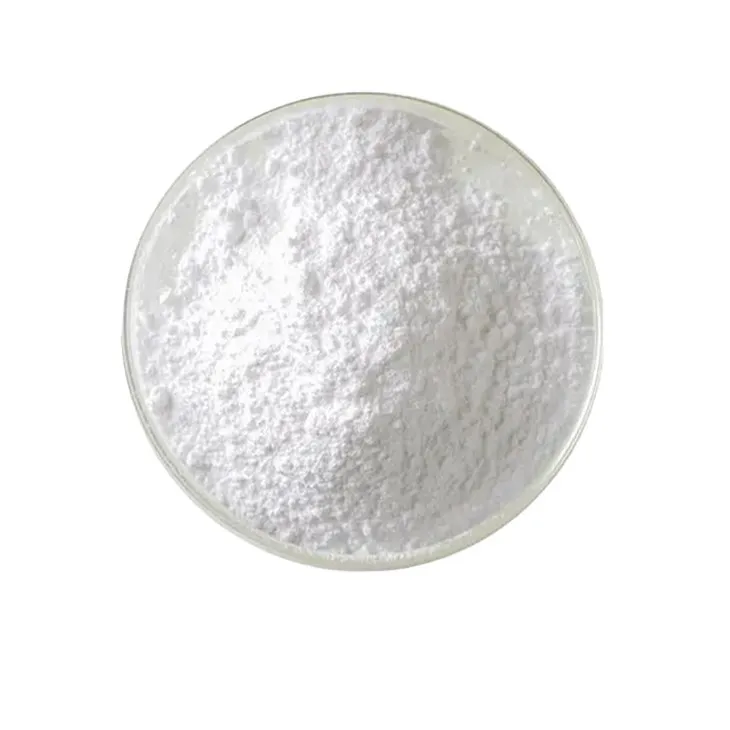- 0086-571-85302990
- sales@greenskybio.com
All the benefits of resveratrol extract.
2024-11-14

1. Introduction to White Resveratrol extract
White Resveratrol extract has emerged as a compound of great interest in recent years. It is a natural phytoalexin produced by plants, especially grapes, in response to stressors such as fungal infections or UV radiation. This extract has been the focus of numerous scientific studies due to its potential wide - range of health benefits.

2. Anti - aging Properties
Cellular - level Impact: One of the most well - known benefits of white Resveratrol extract is its role in anti - aging. At the cellular level, it acts as a powerful antioxidant by scavenging free radicals. Free radicals are unstable molecules that can cause damage to cells, including DNA, proteins, and lipids. This damage accumulates over time and is a major contributor to the aging process. By neutralizing these free radicals, resveratrol helps to slow down the cellular damage and thereby decelerates the overall aging process.
Effect on Skin Appearance: Resveratrol can have a visible impact on the skin. It helps to improve skin elasticity, reduce the appearance of wrinkles, and give the skin a more youthful glow. This is because it promotes the production of collagen, a protein that is essential for maintaining the structure and firmness of the skin.
Organ Functionality: Beyond skin - deep benefits, resveratrol also affects the overall functionality of organs. As cells in various organs are protected from free - radical damage, their normal physiological functions are better maintained. For example, in the heart, it may help to keep the heart muscle cells healthy, reducing the risk of age - related heart diseases.

3. Role in Metabolism
Blood Sugar Regulation: Resveratrol may play a significant role in regulating blood sugar levels. It can enhance insulin sensitivity, which is crucial for proper glucose metabolism. In individuals at risk of diabetes or those already diagnosed with the disease, improved insulin sensitivity means that the body can more effectively use insulin to transport glucose from the bloodstream into cells for energy production.
Metabolic Rate: There is also some evidence to suggest that resveratrol can influence the metabolic rate. It may stimulate certain metabolic pathways in the body, potentially leading to increased calorie burning. However, more research is needed to fully understand this aspect and its implications for weight management.

4. Neuroprotective Effects
Protecting Neurons: Resveratrol has important neuroprotective effects. It can safeguard neurons from damage caused by various factors such as oxidative stress, inflammation, and excitotoxicity. Neurons are highly specialized cells in the nervous system that are responsible for transmitting and processing information. Protecting these neurons is vital for maintaining normal cognitive function.
Cognitive Function and Aging: As we age, the risk of cognitive decline increases. Resveratrol may help to counteract this decline by protecting neurons. It could potentially improve memory, attention, and other cognitive abilities. This is especially relevant in the context of neurodegenerative diseases.
4.1 Reducing the Risk of Neurodegenerative Diseases
Alzheimer's Disease: Alzheimer's is a progressive neurodegenerative disorder characterized by the accumulation of amyloid plaques and tau tangles in the brain, which lead to the loss of neurons and cognitive impairment. Resveratrol has been shown in some studies to interfere with the formation of amyloid plaques and reduce the neurotoxicity associated with them. This suggests that it may have a role in preventing or delaying the onset of Alzheimer's disease.
Parkinson's Disease: Parkinson's disease is another neurodegenerative condition, mainly caused by the degeneration of dopaminergic neurons in the substantia nigra region of the brain. Resveratrol may protect these neurons from oxidative stress and inflammation, which are implicated in the pathogenesis of Parkinson's. Although more research is needed, the early findings are promising.

5. Promotion of Longevity
Studies in Organisms: Resveratrol has shown the potential to promote longevity in certain organisms. For example, in some studies on yeast, worms, and fruit flies, resveratrol supplementation was associated with an extended lifespan. These organisms share some basic biological mechanisms with humans, which gives hope that resveratrol may have a similar effect in humans.
Human Research: While the evidence from human research is still in its early stages, there are some indications that resveratrol may have a positive impact on human longevity. However, large - scale, long - term studies are required to confirm this potential. Factors such as dosage, individual genetic differences, and lifestyle factors need to be carefully considered in future research.
6. Other Potential Benefits
Anti - inflammatory Effects: Resveratrol has anti - inflammatory properties. Chronic inflammation is associated with a wide range of diseases, including heart disease, diabetes, and cancer. By reducing inflammation, resveratrol may help to prevent or manage these conditions. It can inhibit the production of inflammatory cytokines and enzymes in the body.
Cardiovascular Health: In addition to its anti - aging effects on the heart mentioned earlier, resveratrol may also have other benefits for cardiovascular health. It can help to lower blood pressure, improve blood lipid profiles (such as reducing LDL cholesterol and increasing HDL cholesterol), and prevent the formation of blood clots. These effects work together to reduce the risk of heart attacks and strokes.
Cancer Prevention: There is some evidence to suggest that resveratrol may have anti - cancer properties. It can interfere with the growth and spread of cancer cells in several ways, such as inducing apoptosis (programmed cell death) in cancer cells, inhibiting angiogenesis (the formation of new blood vessels that supply tumors), and suppressing the activation of oncogenes. However, more research is needed to determine its effectiveness as a cancer - prevention or treatment agent.
7. Conclusion
White resveratrol extract has a diverse range of potential benefits. From its anti - aging effects on the skin and organs to its role in metabolism, neuroprotection, and promotion of longevity, it shows great promise. Additionally, its anti - inflammatory, cardiovascular - protective, and potential anti - cancer properties further highlight its importance. However, while the scientific evidence is growing, more research is still needed, especially in human studies, to fully understand and harness the power of this remarkable compound.
FAQ:
What is the role of white resveratrol extract in anti - aging?
White resveratrol extract is involved in anti - aging by scavenging free radicals. This action occurs at the cellular level and slows down the aging process. It impacts not only the skin's appearance but also the overall functionality of organs.
How does resveratrol extract help with blood sugar regulation?
Resveratrol extract may play a role in regulating blood sugar levels by improving insulin sensitivity. This is beneficial for individuals at risk of diabetes or those already having the disease.
What are the neuroprotective effects of resveratrol?
Resveratrol has neuroprotective effects as it can protect neurons from damage. This is crucial for maintaining cognitive function as people age and may potentially reduce the risk of neurodegenerative diseases such as Alzheimer's and Parkinson's.
Can resveratrol really promote longevity?
Studies on certain organisms have shown that resveratrol can extend lifespan. However, more research in humans is required, but there is potential for resveratrol to contribute to longevity.
How does white resveratrol extract affect overall health?
White resveratrol extract affects overall health in multiple ways. It has anti - aging effects on cells, helps regulate blood sugar levels, protects neurons for cognitive health, and may promote longevity, among other potential benefits.
Related literature
- Resveratrol: A Review of Its Anti - Aging and Anti - Diabetic Properties"
- "Neuroprotective Effects of Resveratrol: A Review of the Current Evidence"
- "Resveratrol and Longevity: Insights from Preclinical Studies"
- ▶ Hesperidin
- ▶ Citrus Bioflavonoids
- ▶ Plant Extract
- ▶ lycopene
- ▶ Diosmin
- ▶ Grape seed extract
- ▶ Sea buckthorn Juice Powder
- ▶ Fruit Juice Powder
- ▶ Hops Extract
- ▶ Artichoke Extract
- ▶ Mushroom extract
- ▶ Astaxanthin
- ▶ Green Tea Extract
- ▶ Curcumin
- ▶ Horse Chestnut Extract
- ▶ Other Product
- ▶ Boswellia Serrata Extract
- ▶ Resveratrol
- ▶ Marigold Extract
- ▶ Grape Leaf Extract
- ▶ New Product
- ▶ Aminolevulinic acid
- ▶ Cranberry Extract
- ▶ Red Yeast Rice
- ▶ Red Wine Extract
-
Selenium yeast
2024-11-14
-
Black Pepper Extract
2024-11-14
-
Citrus bioflavonoids
2024-11-14
-
Sea buckthorn oil
2024-11-14
-
Rose Hip Extract
2024-11-14
-
Almond Extract Powder
2024-11-14
-
Hawthorn powder
2024-11-14
-
Aguaje Extract
2024-11-14
-
Epimedium extract powder
2024-11-14
-
Coix Seed Extract
2024-11-14





















